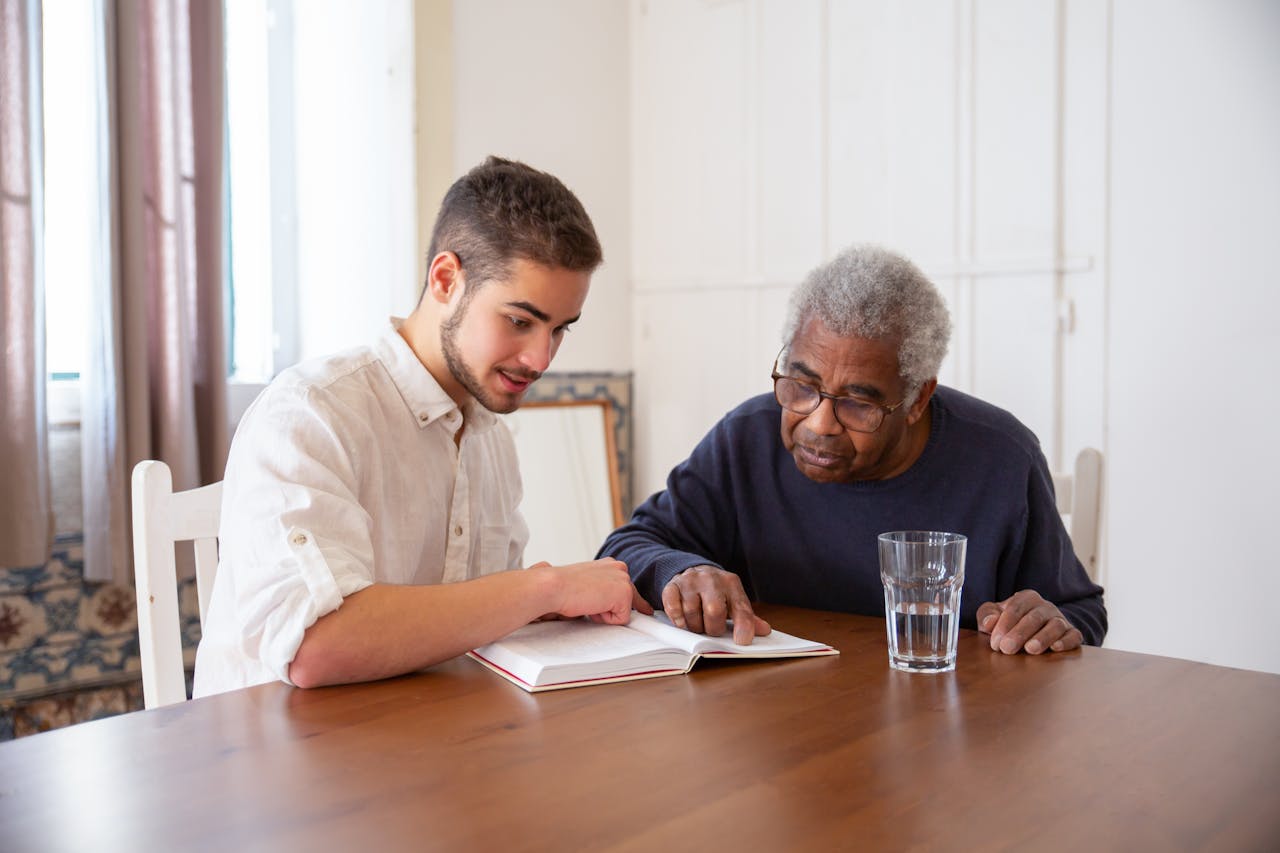Personalized care is an important part of maintaining health and happiness for older adults. It’s all about making sure that their specific needs and preferences are understood and respected. This way of caring not only helps with physical health, but also supports emotional well-being and independence.
Caring for older adults with a personal touch means considering each person’s unique medical conditions, lifestyle, and personal history. This approach can lead to better health outcomes because the care is tailored to fit the individual. Let’s explore the steps to ensuring personalized care for older adults.
Assessing Individual Needs
Figuring out what each person truly needs is the first step in providing personalized care. This involves looking at both medical and personal elements to form a complete picture of their situation. Understanding what makes each person unique helps in creating a care plan that perfectly aligns with their needs.
1. Identify Medical Conditions: Start by gathering a clear list of any existing health issues. This means keeping track of chronic conditions like arthritis or diabetes and understanding how they impact daily life.
2. Understand Personal Preferences: Consider the individual’s lifestyle and preferences. What are the activities they enjoy or dietary preferences they follow? Respecting these choices can greatly enhance their quality of life.
3. Family Input: Families play a key role in the care process. They often have valuable insights about the older adult’s likes, dislikes, and any past experiences related to healthcare.
Engaging with healthcare professionals such as geriatricians can offer valuable assessments. They specialize in understanding the complex needs of older adults and can provide guidance tailored specifically for them. By working together with doctors, family members, and caregivers, a well-rounded and personal approach to care can be established.
Understanding and assessing individual needs requires ongoing conversations and adjustments to ensure that personalized care remains effective as circumstances change. A strong foundation in this area leads to a more coherent and harmonious caregiving journey, enhancing the lives of those in care.
Developing a Personalized Care Plan
Once individual needs are assessed, the next step is crafting a personalized care plan. This plan serves as a roadmap to address every aspect of an older adult’s health and daily life. It should focus on unique needs and preferences to ensure the care provided is relevant and effective.
Creating such a plan involves several steps:
1. Collaborate with Professionals: Work closely with healthcare providers, including geriatricians, to gather expert insights. They can offer valuable advice on managing chronic conditions and suggest routines that benefit overall well-being.
2. Incorporate Family Insights: Family members often provide essential input into a loved one’s daily habits and history. Their observations help ensure the care plan covers all necessary details and respects the individual’s wishes.
3. Set Clear Goals: Define clear, achievable goals that focus on improving or maintaining health. These can range from physical activities to dietary changes, all personalized to suit the individual’s needs.
By proactively involving everyone involved in the care process, the plan becomes a comprehensive guide that adapts to changes over time.
Implementing Care Strategies
Implementation turns plans into action, giving life to the care strategies developed. This involves setting routines, managing medications, and making necessary lifestyle adjustments. Having a clear action plan simplifies this process.
– Establish Daily Routines: Consistent routines help older adults feel secure and comforted. Simple daily schedules, including meal times, medication, and leisure activities, provide structure.
– Monitor Health Progress: Keep a close watch on health changes. This can prevent new issues from becoming crises and ensures timely adjustments to the care plan.
– Include Personal Activities: Encourage activities that match personal interests. Whether it’s a short walk, a favorite hobby, or socializing with friends, keeping engaged boosts emotional health.
Implementing these strategies requires dedication from both caregivers and family members. It ensures that older adults receive consistent care and support tailored to their individual needs.
Evaluating and Adjusting Care Plans
Care plans aren’t set in stone. Regularly reviewing and tweaking them keeps the care relevant. As health conditions change, so should the approach.
– Scheduled Reviews: Dedicate time every few months to evaluate the plan’s effectiveness. Are there goals that have been met or others that need more attention?
– Adjust According to Health Changes: As older adults experience new health challenges, the care plan should reflect these changes. Being adaptable ensures that the care provided always meets current needs.
Regular evaluation helps in maintaining a proactive stance in caregiving. It’s about ensuring that every plan remains as dynamic and individual as the person it’s designed to help. Making these adjustments ensures care remains relevant and effective, providing the best possible quality of life.
Supporting Family and Caregivers
Caring for an older adult is a collaborative effort that often involves family members and a range of caregivers. Supporting these individuals is essential for effective caregiving.
– Provide Resources and Support: Offering educational materials, training sessions, and support groups can equip family members and caregivers with the skills and knowledge they need to provide the best care possible.
– Importance of Respite Care: Ensuring caregivers have access to respite care services allows them to rest and recharge. This helps prevent burnout and ensures that they are able to provide continual, high-quality care.
Enhance Quality of Life With Personalized Care
Personalized care offers significant benefits for older adults, touching every aspect of their lives. It not only addresses physical health but also enhances emotional well-being and independence.
By understanding the unique needs and preferences of each individual, and making adjustments when necessary, personalized care can greatly improve an older adult’s quality of life. Encouraging families and caregivers to seek professional advice can lead to more effective and tailored care solutions that truly resonate with those they care for.
Ensure that the well-being of your loved ones remains the priority by embracing comprehensive and thoughtful approaches to caregiving. Discover how you can enrich their lives through care for older adults with Sabio Health. Support their independence and quality of life by considering solutions that truly resonate with their specific needs.



